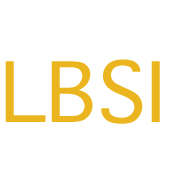
Maybe you’ve been thinking about doing something new for a long time. Maybe you’ve spent years on the fence and have finally decided to take the plunge. Or maybe the decision came about much more quickly. Like in a eureka moment of inspiration, you knew for sure and for certain you were going to change things up and go in a whole new direction.
Naysayers
Either way, once you start telling friends and family about your new big goals and life changing decisions, rather than an enthusiastic encouraging response what you’ll often get is a brick wall of discouragement. You’ll hear a litany of reasons why this new big plan of yours is a bad idea. You don’t know if it’s going to be successful. You have no idea if you can make money. It’s better to stick to the tried and true rather than start something new.
People will tell you they’re discouraging change because they’re worried about your welfare. What they’re not telling you, and maybe what they don’t know, is that they also discourage change in others because it reminds them subconsciously of what they’re not doing. The dreams they’re not pursuing, the chances they’re not taking.
Most of the time when we want to go somewhere new we have to begin by going it alone. That’s not to say we cut the people who aren’t supporting us out of our lives, it is to say we don’t take them on this new journey with us.
As you go along this new journey you will meet new people on the way. People who will embrace the person you’re becoming. People who will help you and teach you and guide you.
Resistance from within
Unfortunately, even as you’re going ahead in this new direction and accumulating new people to help you, you’re still going to encounter resistance, a voice telling you you’re not good enough, that you don’t have the skills necessary to pull this thing off, that it’s too risky. That voice will be your own.
No matter how much we believe in our big, long terms goals, perusing them is still scary. Fear is good. It keeps us safe. Fear is also bad because it keeps us from growing. So, once you’ve put the discouraging voices of others behind you and pushed through the fear of your own discouraging voice, you probably think you can get on your way.
Not quite. You’re still likely to encounter another roadblock. In your efforts to complete this new goal, you’re going to do a lot of research and planning. You need that. You need a clear direction, and you want to do everything you can to avoid time and/or money consuming mistakes. However there comes a point when planning and research crosses the line from being helpful into being another wall called procrastination.
Take action
Once you’ve done your research take action. Get your feet wet. Don’t worry about mistakes. You’ll learn from them. Each step you take forward is a brick loosened from that wall. Each time you break the fear barrier is another brick loosened. Each step you take past procrastination is another.
Randy Pausch was a computer science professor at Carnegie Mellon University. Once he learned he was dying of pancreatic cancer he gave a final lecture called, The Last Lecture: Achieving Your Childhood Dreams. If you’ve never watched it, do yourself a favor and watch it.
One of the most memorable quotes from lecture is about the importance of perseverance. Randy said, “The brick walls are there for a reason. The brick walls are not there to keep us out. The brick walls are there to give us a chance to show how badly we want something. Because the brick walls are there to stop the people who don’t want it badly enough. They’re there to stop the other people.”










